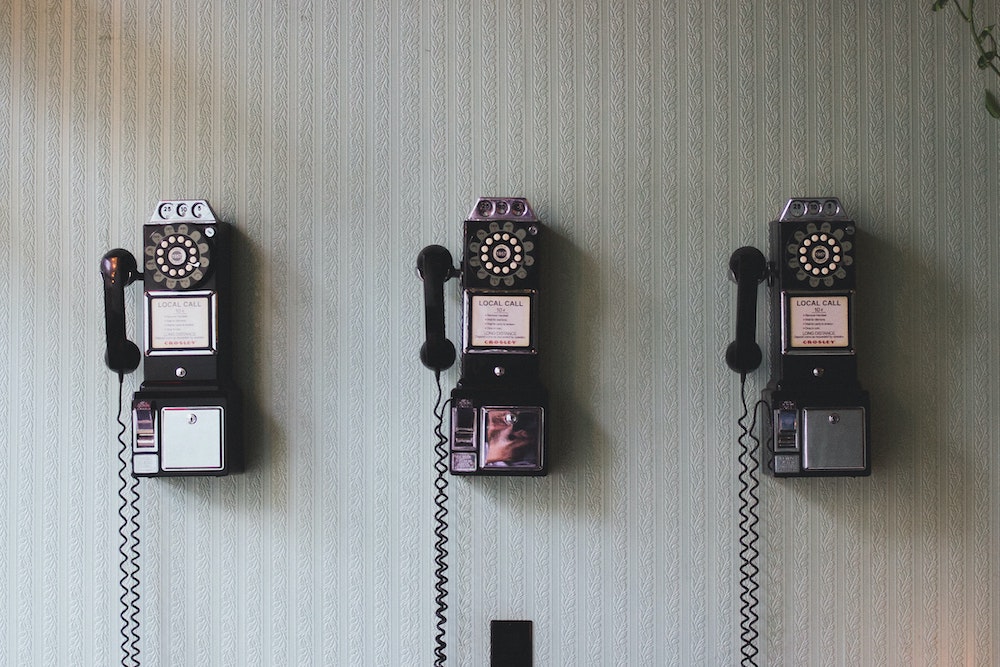3 Ways to Manifest a Better Relationship
Nov 06, 2022
What is manifestation?
Manifesting love is a bit of a buzz trend right now. Little did I know, I was actually manifesting things (including love) into my life before I even knew it was a thing. I read Roxie Nafousi’s book on manifesting and it very much spoke to so much of what I practice with self-worth. Manifestation is ultimately a journey of self-worth and the ability to love yourself deeply. Manifestation is based on the law of attraction - the ability to attract what we want into our lives by choosing our thoughts.
Roxie says:
“Manifesting is the ability to create the exact life you want. It’s the ability to draw in anything that you desire and become the author of your own story.”
We all are wired to want to feel love, safety, security & connection. We are wired so deeply to be with someone that we end up settling for average relationships (or even toxic relationships) instead of healthy & loving relationships. We are so fearful of being alone that we choose any kind of connection, over a healthy relationship, which ends up meaning we don’t get what we truly deserve. Manifesting a better relationship is going to get you facing your fears and stepping outside of your comfort zone.
Unfortunately the exact act of settling for what you have, in effect fighting for your limitations with excuses such as “I won’t get anyone better” “I should be happy with what I have” “I am scared of being alone”, stops you from manifesting a better relationship. We have to learn to fight for our expansion and all that we deserve by learning to love ourselves and raising our self-worth.
So how can we start to manifest love into our lives?
The three ways to manifest a better relationship:
-
Learn your emotional needs.
-
Learn to communicate.
-
Stop people pleasing.

1.Learn your Emotional Needs
Emotional needs are fundamental to a relationship but the problem is, most of us don’t know what our emotional needs actually are. When we get clear on what our emotional needs are we can start to get clear on what our non-negotiables are and effectively manifest a specific person in our lives. We want to be picky when it comes to finding a partner because the quality of our lives depends on the quality of our relationships. So until you know what’s important to you, it’s hard to get picky!
When we have low self-worth we question how we feel & we question ourselves for being too needy. I used to think that my feelings were “silly” and that I should brush them under the carpet. I learnt that ALL my feelings are valid, they might not be factual but they are valid. I also learnt that I wasn't needy, I was just choosing partners who could not meet my needs and then choosing to stay regardless. I learnt how to express my emotional needs in a way that allowed me to communicate to my partner what I need whilst also understanding how I can soothe my emotional needs myself.
We all have 3 main emotional needs:
- Status - this is about feeling important within a relationship. Feeling like we matter, feeling like we are considered, feeling like we are deeply respected.
- Connection - this is about shared values, shared experiences, feeling loved, feeling appreciated.
- Security - this is about trust and safety.
When we manifest a better relationship we have all 3 needs met in a balanced way. When we tip the scales in favour of one we can potentially lower our standards. For example - a couple may stay together because they rely on each other’s finances & the security of a shared home however their connection and status needs are not being met. Or someone might want to be in a relationship with someone who is high up in a company or famous which then means their connection need could be jeopardised.
So it’s important to believe that we can get all 3 needs met within a relationship because then we can manifest the relationship we deserve and desire. We lower our standards when we believe we can only get one need met. This can take work. Energy needs to be put into the relationship to keep honouring all 3 needs so communication, boundaries, honesty and knowing your core values is key here.
Journaling tips:
- What, to you, equals a happy relationship?
- Take a look at your love life. In your current relationship (if you are not in a relationship think about a previous relationship) what emotional needs are being met and in what way? What emotional needs are not being met? How would you like them to be met?
- How can you also make a commitment to meet some of your own emotional needs? For example if you have a core value of nature and you aren’t spending any time in nature yourself, can you also spend time in nature alone / with friends / join a community group rather than just rely on your partner to meet this need? (We can't expect our partner to meet every single one of our needs.)

2.Learn to communicate
When we manifest a better relationship we start to take responsibility for everything going on in our lives. Which means we have to learn how to communicate in a healthy way that allows for repair and change. There are 4 key signs that a relationship will break up or a marriage will end in divorce and it has to do with the way you communicate.
- Criticism.
- Contempt.
- Defensiveness.
- Stonewalling.
Examples of these behaviours:
- “You are terrible at remembering to take the bins out.”
- “You’re stressed? I am the one who has been working all day and I come back and nothing has been done. I am fed up with having to treat you like a child (rolling eyes), it’s pathetic and unattractive.”
- “Stop having a go at me, you could have taken the bins out, you know I have had a busy and difficult day.”
- Stonewalling occurs when the listener withdraws from the interaction, shuts down, and simply stops responding to their partner.
Which behaviours do you tend to exhibit in conflict? So often when we look to changing our relationships we lay a lot of blame on our partners saying things like “he made me feel” or “she never sees my point of view.” Two things to note here: no one makes you feel anything, you have to take responsibility for your feelings (in some cases meaning you may need to end a relationship) and using absolutes like “never” and “always” just intensifies the situation.
Journaling tips:
- What can you start to take responsibility for within the relationship?
- Are you communicating your needs or just placing expectations on your partner? “They should just know that I am angry and come to comfort me.”
- Can you clearly and compassionately ask for what you want?
- How can you soften your language?
- How can you repair rather than looking to be right?
- How can you have conflict without losing respect for your partner? (Being defensive, criticising, rolling eyes, name calling etc.)
- How can you appreciate one another when things are good?
- How can you ask for the positive behaviour rather than focusing on all the ways they are going wrong?
- How can you learn to set boundaries? For example gently saying: “If you raise your voice I will leave the conversation.”
- Can you learn to give each other space for 20 minutes if the conversation gets heated?
I love this quote: “Whatever is hysterical is historical.” Meaning that when we are triggered we are likely to be reacting to how a behaviour made you feel in your past / childhood. Which means that the behaviour feels way bigger because of your history. So starting to recognise this can be really helpful. Awareness is the first step in making any personal changes. Creating a lasting relationship means you are going to need to get clear on what is causing you to feel triggered.

3.People Pleasing
People pleasing is a sign of low self-worth and will prevent you from manifesting a better relationship. People pleasing ends up in: exhaustion, resentment, guilt, frustration & ultimately unhealthy relationships. So why are so many of us people pleasers?
- We were modelled it. The likelihood is, this is something that has been modelled to you as a child and perhaps in adulthood too. Society often praises “selflessness” and people pleasing. Society also praises the “good girl” attitude - fitting into what’s asked of us rather than speaking our minds. These behaviours can end up in unrealistic expectations that cause a lot of internal pain and misalignment - so may of us choose to not speak our truths over wanting to be liked by others. All of this is manifested in low self-worth.
- Anxious attachment - we all have an attachment style when it comes to relationships. An anxious attachment style generally manifests as you thinking negatively about yourself and positively about others. This low self-worth causes you to seek validation from the people you believe are better than you. Anxious attachment styles are formed where your needs were not consistently met as a child. For example, when you were upset, sometimes you were soothed, sometimes you were ignored. You therefore learnt that you were not always worthy of receiving love and attention. This causes low self-worth behaviours such as: seeking external validation, reassurance from others, wanting to gain approval, difficulty making your own decisions, a lack of boundaries, and conforming to the expectations of others. These behaviours are coping mechanisms that you learned as a young child to feel loved, seen, and heard.
- A fear of being disliked. One of the best books I have read is “The Courage to be Disliked.” Based on the theories of Alfred Adler, philosopher of the 19th Century, he writes about how we can gain ultimate freedom by having the courage to be disliked by others. “The courage to be happy also includes the courage to be disliked. When you have gained that courage, your interpersonal relationships will all at once change into things of lightness.” Ultimately wanting to be liked by someone over staying true to what feels right and good for you is always going to cause frustration and resentment. Not only towards the other person but towards ourselves too. You cannot improve your self-worth if you are more concerned with what others think of you, it’s a downwards spiral.
- We are codependent. Codependency happens when we overtly or covertly try to control the feeling states, behaviours and outcomes of other people. This behaviour comes from a place of insecurity and the need to be validated by others. Statistically a huge amount of the population is codependent. People who are codependent are not neccessarily needy (as the word suggests) but they tend to put the needs of others above them. They suppress their own needs and feel uncomfortable, even terrified of, asking for things and saying how they truly feel. It usually revolves around a limiting belief that they are un-lovable & will be a burden to others if they say how they really feel. The key is to be in an interdependent relationship which means that the person’s behaviours are coming from a place of security, trust and high self-worth.
Journaling questions:
- Do you people please?
- Having read the above, where do you think your people pleasing comes from?
- If you were to be more concerned with living in alignment to what feels right, rather than people pleasing, what would you do differently and with who?
SIGN UP TO SELF-WORTH WEEKLY
Join our newsletter to receive self-worth tips, direct answers to your questions, personal stories, yoga classes, meditations and much more.
Your information will not be shared & you can unsubscribe at any time.






